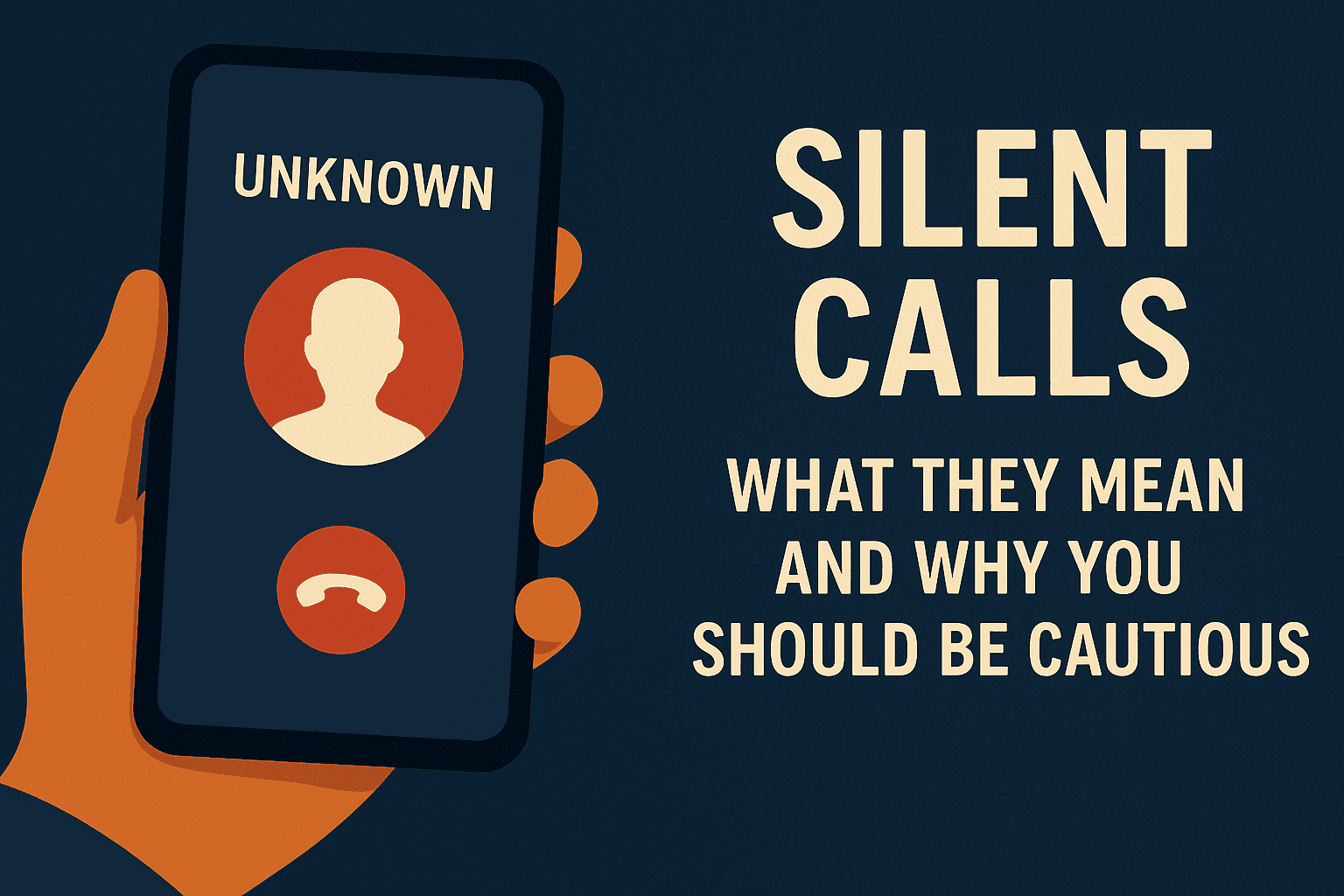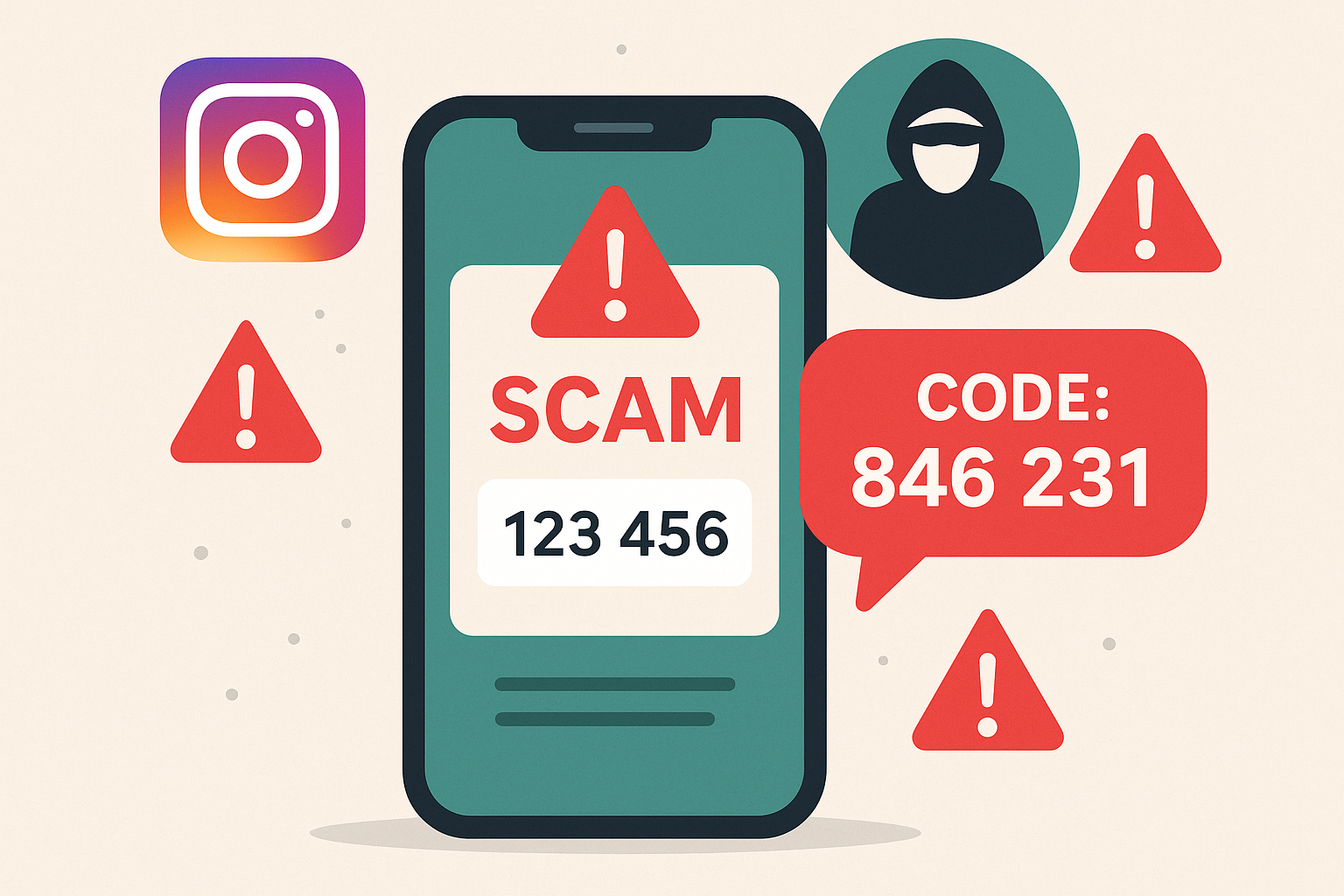You answer your phone and hear nothing. No voice, no background noise—just silence. Then, after a few seconds, the call ends. It might seem harmless, even accidental, but these silent calls are often the first stage of more serious scams. As scammers adopt new technologies, including AI and automated dialing systems, these calls are becoming more frequent and more sophisticated.
Understanding what’s happening behind the silence can help you protect yourself before the next call comes through.
What Are Silent Calls?
Silent calls are phone calls where no one speaks when you answer. They may end abruptly or stay connected for several seconds before disconnecting. While some are simply the result of malfunctioning telemarketing software, a large number are intentional attempts to gather information or test phone numbers for future scams.
In many cases, these calls are placed by automated dialing systems, also known as robodialers. These systems can generate millions of phone numbers, dial them in batches, and detect which numbers are active based on who answers. Once a number is confirmed as “live,” it’s added to a targeted call list—one that can later be sold or used for scams.
Why Scammers Use Silent Calls
The silence is strategic. Scammers aren’t trying to talk to you yet—they’re collecting data. Here’s what they can learn from a single answered call:
- Verification: Your number exists and is in use.
- Response habits: They can tell what time you usually answer and how quickly.
- Behavior cues: If you speak first or say “hello,” they know you’re engaged.
Once that information is logged, your number becomes valuable for future fraudulent activity—whether that’s phishing, impersonation, or AI voice scams.
AI Voice Scams and “Voice Harvesting”
A growing concern tied to silent calls is voice-harvesting, where scammers attempt to record samples of your voice to create AI-generated voice clones. They may start a call in silence, then later use tactics to prompt you into saying common words like “yes,” “hello,” or your name.
With even a few seconds of clear speech, modern voice synthesis tools can create a convincing digital replica of your voice. Scammers can then use this to impersonate you in phone scams, access voice-authenticated systems, or trick family members or banks into believing they’re speaking to you.
When It’s Not a Scam
Not every silent call is malicious. Sometimes, they happen because of technical issues with predictive dialers—tools used by legitimate companies to connect agents with potential customers. When too many calls are made at once, or no agent is available to take the call, you may experience a few seconds of silence before the system disconnects.
However, if these calls come from unknown or suspicious numbers, especially with no caller ID or foreign area codes, treat them as potential scam attempts.
How to Protect Yourself
While silent calls can’t always be avoided, you can reduce your risk significantly by following a few simple precautions:
- Do not speak if the line is silent. Hang up immediately.
- Never say “yes” to an unknown caller. Scammers can record and manipulate your response.
- Block and report the number using your phone’s settings or carrier tools.
- Enable spam filters through your mobile carrier or a call-screening app.
- Avoid calling back unknown numbers—especially those with international prefixes.
- Register your number with your country’s Do Not Call registry.
- Educate elderly relatives or anyone less tech-savvy about these tactics.
What to Do If You Receive Multiple Silent Calls
If you receive repeated silent calls over several days or weeks, it’s a sign your number may have been added to an active scam list. In that case:
- Stop answering unknown numbers altogether for a while.
- Use your carrier’s “number change” or “number blocking” service if the calls become excessive.
- Consider using reverse lookup services to check suspicious numbers.
- Report persistent silent calls to your telecom provider or local fraud reporting authority.
The Bigger Picture: AI and the Future of Scam Calls
Silent calls are no longer just nuisances—they are entry points into the AI-driven world of digital fraud. As artificial intelligence makes it easier to mimic voices and automate call generation, scammers will continue to exploit every bit of data they can gather, including the sound of your greeting or the moment you answer.
The best defense is awareness. Recognizing the intent behind these silent calls transforms you from a target into a vigilant defender of your privacy.





